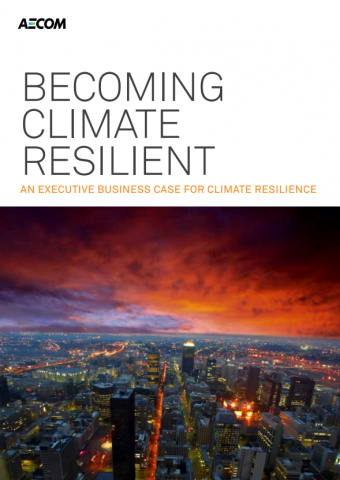Becoming Climate Resilient: An Executive Business Case for Climate Resilience


“We believe this [An Executive Business Case for Climate Resilience] is important because the business community can be more agile than governments. It can move quickly to assess risk, promote systems and technology, and set standards for resilience. It is also well positioned to advocate for resilience thinking because of its direct relationships with customers, suppliers and everyone in between.” – Margareta Wahlström Special Representative UN Secretary General for Disaster Risk Reduction
Report by AECOM, supported by UNISDR, on how businesses can take the lead in resilience against major climate change and the resulting hazards that follow, and integrating climate resilience into existing business frameworks and processes.
In the past, when businesses have needed to make important decisions relating to business planning, new investments and diversification, design of new assets and insurance they have relied on historical weather data. This is no longer adequate; the rules are changing.
